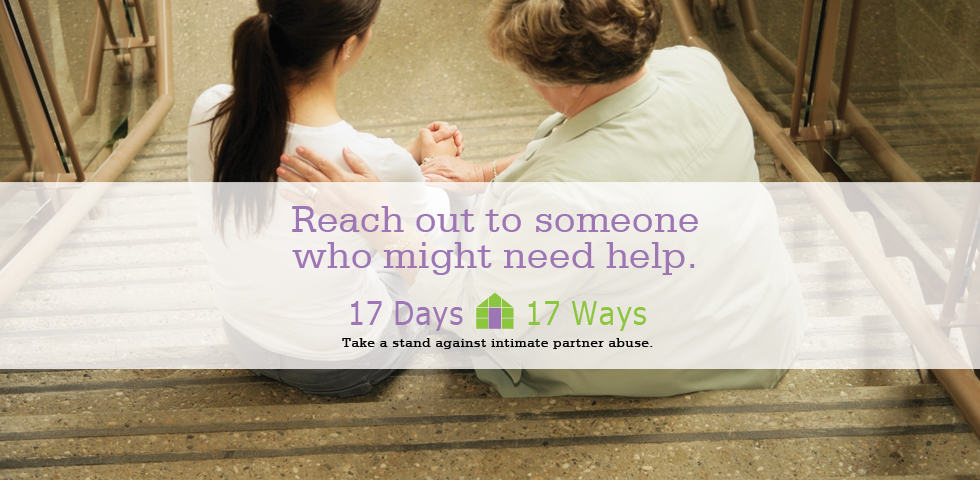Day 5: Reach Out to Someone
Today’s way to take a stand against intimate partner abuse is important and difficult. Reaching out to someone who you think is being abused by an intimate partner can be scary.
What if I’m wrong?
What if my friend is offended by me asking?
What if I make things worse?
Although all of these are possibilities, it’s more likely your friend will appreciate knowing you care enough to check in. The National Domestic Violence Hotline recommends these steps to help someone you know:
- Acknowledge your friend is in a difficult and scary situation. Say these words as many times as possible: “It’s not your fault.”
- Listen to your friend. It may be difficult for your friend to talk about the abuse. What s/he needs most is someone who will believe and listen. Practice saying these words: “I believe you.”
- Be non-judgmental. Avoid victim-blaming language and remember that intimate partner abuse doesn’t always happen like it’s portrayed in the movies.
- Support your friend’s decision to stay or flee. There are many reasons why victims stay in abusive relationships. They may leave and return to the abuser several times. They will need your support even more during those times.
- Encourage your friend to talk to people who can help. Reassure them that they are not alone and that there is help and support out there. Have the number of our crisis hotline memorized or written down for your friend: 800-544-2022. Our crisis counselors are available 24-hours a day, every day of the year to safety plan and provide resources.
Your friend must decide the best course of action. So much of their power and control already has been taken by the abuser. Remember that your role is to empower and support and resources, not to rescue them.
This post is part of our 17 Days/17 Ways campaign to take a stand against intimate partner abuse.


